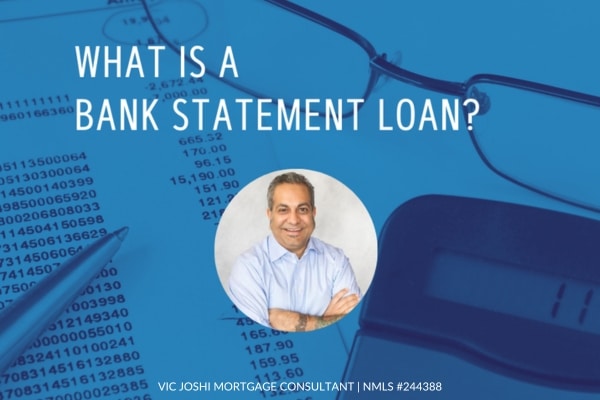Loan Options
As a mortgage consultant, it’s important to me be able to educate clients to ensure that they understand the various financing options available to meet their needs. Today, I’d like to discuss a less commonly understood type of loan known as a bank statement loan.
Bank Statement Loan
To put it simply, a bank statement loan is a type of home loan designed for self-employed borrowers, contractors, freelancers, and business owners who may not have the traditional W-2 forms or whose tax returns are inadequate to secure a conventional mortgage. Instead, this loan type allows these individuals to use their bank statements to verify income by establishing consistent cash flow to their business.
How It Works
1Income Verification
Rather than relying on pay stubs or tax returns, lenders offering bank statement loans will look at the borrower’s business and personal bank statements—usually the past 12 to 24 months—to assess income. They’ll calculate the borrower’s ability to repay the loan based on the cash flow shown in these statements.
2Loan Approval
If the lender determines that the income demonstrated through the bank statements is sufficient, they will approve the loan. Remember, different lenders have different criteria, so it’s important to clarify these details with each lender. Each lender will reduce the gross cash flow number by a business expense factor so it is important to vet each lender carefully to find the one that matches best with each borrower and their business.
3Interest Rates and Terms
Typically, bank statement loans may come with slightly higher interest rates than traditional loans due to the perceived higher risk involved. The loan terms are also flexible and can range from short-term (like 15 years) to longer-term options (like 30 years).
4Down Payment
Down payment requirements can vary based on the lender and the borrower’s creditworthiness, but they’re usually higher than for traditional loans, often ranging from 10-20%.
Loan for Self-Employed & Entrepreneurs
This type of loan is crucial for many of our clients who may not have a regular, predictable income, but have a healthy cash flow that can comfortably cover a mortgage payment. It’s an excellent option for entrepreneurs, freelancers, and self-employed.
One important note: Because bank statement loans aren’t sold to government-sponsored entities like Fannie Mae or Freddie Mac, they are considered non-qualified (non-QM) loans. As such, borrowers don’t have to comply with the Ability-to-Repay rule under the Dodd-Frank Act, which makes them a bit riskier. However, reputable lenders will still follow good lending practices to ensure the borrower’s ability to repay the loan.
Learn More About Bank Statement Loans
If you want to learn more about bank statement loans, please feel free to reach out to me or to schedule a call here on my calendar.
As always, your mortgage guy,
Viral (Vic) Joshi
Home of Real Mortgage Advice®



